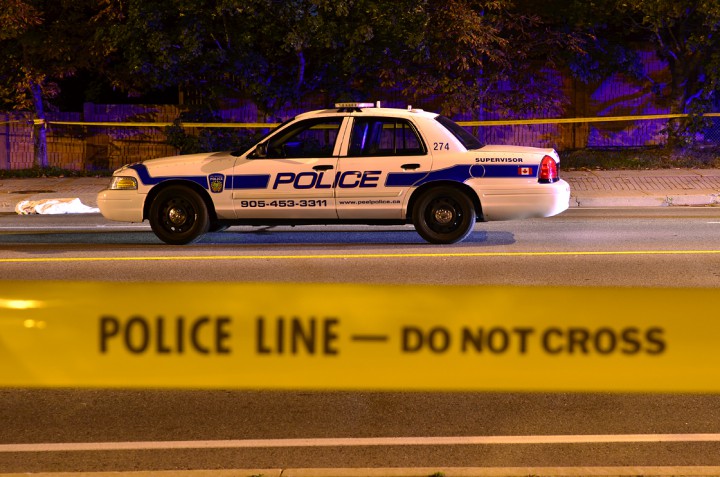TORONTO – An Ontario court has ruled that Peel Regional Police violated cellphone customers’ charter rights when requesting a broad swath of personal information from about 40,000 Telus and Rogers subscribers to help them with an investigation.

Telus and Rogers brought the Charter of Rights challenge before the court in 2014 after the police asked the companies for the cellphone information of tens of thousands of customers.
The police requested the information as part of an investigation into the robberies of multiple jewellery stores. Officers wanted to identify people using cellphones near the stores around the time of the robberies.
Police asked for customer information for all calls routed through 37 cellphone towers during specific time periods under what’s known as a tower dump production order, according to court records.
In his decision Thursday, Judge John Sproat of the Ontario Superior Court said the information the police sought was “particularly broad and onerous,” adding that they breached the charter rights of customers, specifically their “right to be secure against unreasonable search and seizure.”
Telus said that if it had complied with the tower dump production order, it would have had to turn over the information of at least 9,000 customers. Rogers estimated 34,000 of its customers would have been affected.

Get breaking National news
That information included customers’ names and addresses, who they called, who called them, their locations during calls and how long calls lasted. In some cases, the information included credit card details.
“We thought that crossed the line and was too broad and intrusive,” said Jennifer Kett, a Rogers spokeswoman, in an email ahead of Sproat’s decision.
Rogers’ policy is to only share customer information “when required by law, or in emergencies after careful consideration of the request,” said Kett.
The company’s lawyer, Scott Hutchison, had argued that tower dump production orders are unusual in that innocent people’s information will make up “99.9% of the records sought.”
Peel Regional Police couldn’t immediately be reached for comment.
Sproat also issued seven guidelines for police forces to follow when considering to request cellphone records and for judges to consider when granting orders.
Police, for example, must be able to explain why all the data requested is relevant to their investigation and have the capacity to meaningfully review it all, according to the guidelines.
“Production orders must be tailored to respect the privacy interests of subscribers and conform with constitutional requirements,” Sproat said.
Peel Regional Police later withdrew the original requests, but Sproat still agreed to hear the Charter of Rights challenge, saying in July 2014 that the privacy rights of tens of thousands of cellphone users was of “obvious importance.”







Comments